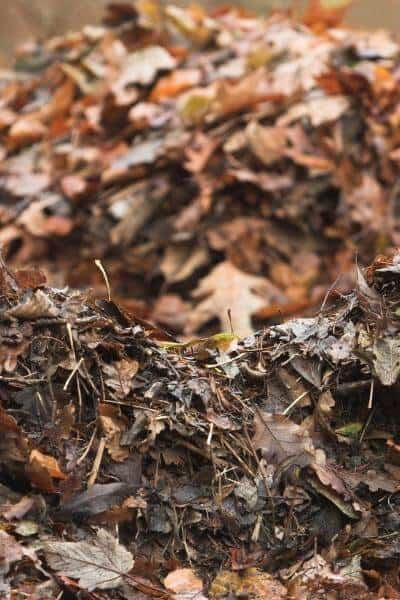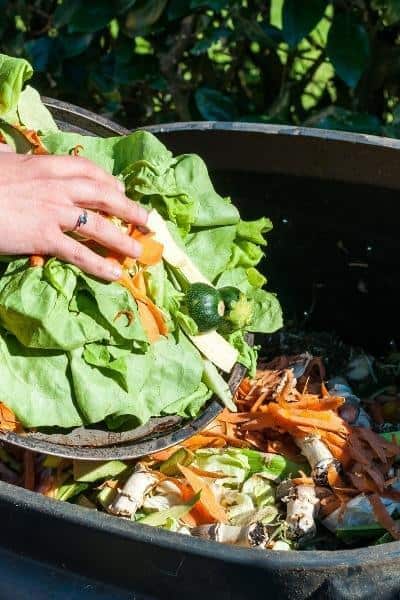
Backyard Chickens Beyond Eggs: 7 Surprising Ways to Benefit from Your Flock
Like many, I started with backyard chickens for the promise of fresh eggs. The idea of collecting warm, brown eggs each morning felt like a perfect blend of farmhouse charm and self-sufficiency. But I quickly discovered they were so much more than just egg-laying machines. They became invaluable members of my homestead, contributing to my garden, my compost, and even my mental wellbeing.

This post explores seven less-obvious ways backyard chickens can contribute to a thriving homestead, going beyond the egg carton. We'll cover benefits like pest control, compost creation, garden enrichment, and even natural entertainment. Get ready to unlock the full potential of your feathered friends!
1. Pest Control Powerhouses: Natural Garden Guardians
Forget harsh chemicals! Chickens are natural-born pest control specialists. They instinctively forage for insects, worms, and other creepy-crawlies in your garden, significantly reducing the population of unwanted visitors. Slugs, snails, beetles, grasshoppers – they're all on the menu!
Managing their access is key. I use a rotating system, allowing my flock to patrol different garden areas for a few hours each day. I’ll often fence off newly planted beds or particularly vulnerable plants (like my prize-winning tomatoes!) with temporary fencing made from chicken wire or repurposed materials.
Actionable Tip: Create a rotating "chicken patrol" schedule for your garden. Divide your garden into sections. Allow the chickens access to one section for a couple of hours each day, rotating them to a new section the following day. This ensures they control pests without overgrazing or damaging your plants. Provide a dust bath area within the section for added benefit (they LOVE this!).
Key Takeaway: Chickens offer a natural and effective form of pest control, significantly reducing the need for harmful chemicals in your organic garden.
2. Composting Champions and Soil Builders: Manure Magic
Chicken manure is a fantastic addition to any compost pile. It's rich in nitrogen, an essential nutrient for healthy plant growth. But raw chicken manure is too "hot" to apply directly to plants (it can burn them). That's where composting comes in.
I mix chicken manure with carbon-rich materials like straw, leaves, shredded paper, and wood chips in my compost bin. The chickens themselves contribute to the composting process! If I allow them controlled access to the compost area (with adequate supervision, of course!), they’ll happily scratch and turn the pile, aerating it and speeding up decomposition.
Actionable Tip: To compost chicken manure, use a ratio of approximately 1 part manure to 3 parts carbon-rich materials. Layer the materials in your compost bin, ensuring good aeration. Turn the pile regularly (or let the chickens help!). After several weeks or months (depending on your climate and composting method), you’ll have nutrient-rich compost ready to nourish your garden. The "hot" composting method involves monitoring temperatures and turning more frequently, and the resulting compost can be ready in a few weeks. Alternatively, a cold composting method involves less active maintenance, though it can take many months to break down. Regardless, make sure to let your compost "age" before use in the garden.
Key Takeaway: Chickens are composting champions! Their manure is an invaluable resource for creating nutrient-rich soil, reducing your reliance on synthetic fertilizers and improving your soil health for regenerative gardening.
3. Garden Enrichment Experts: Natural Tillers and Weed Warriors
Tired of back-breaking tilling? Let your chickens lend a hand! Before planting season, I often let my flock loose in the garden beds I want to prepare. They’ll scratch and peck, loosening the soil and uncovering any lingering weeds. They turn the top few inches of the soil, incorporating organic matter and preparing the bed for planting.
Again, supervision is crucial! Established plants need protection. Use temporary fencing or netting to keep the chickens out of areas where you don't want them to dig. I also remove any plants I really don't want them to eat before turning them loose (farewell, tempting lettuce seedlings!).
Actionable Tip: Before planting a new garden bed or reclaiming an overgrown area, remove any existing vegetation you don't want your chickens to eat. Then, allow them access to the area for a few days or weeks (depending on the size and condition of the area). Provide them with supplemental feed to keep them happy and focused on digging. Regularly check the area to ensure they are not causing excessive damage to surrounding vegetation.
Key Takeaway: Chickens are helpful garden assistants, saving you time and effort on tilling and weeding, contributing to a thriving, sustainable home.
4. Natural Entertainment and Mental Wellbeing: Chicken Therapy
Beyond their practical benefits, chickens offer a unique form of natural entertainment. I find immense joy and relaxation simply watching them interact, forage, and dust bathe in the sun. Their quirky personalities and comical antics are endlessly entertaining.
Spending time outdoors with my chickens is a great way to de-stress and connect with nature. It's a reminder of the simple pleasures in life and a welcome break from the demands of modern life. The connection to the animals benefits your mental well-being.
Key Takeaway: Chickens aren't just productive members of the homestead; they're also delightful companions that can contribute to a more relaxed and enjoyable farmhouse life and homesteading experience.
5. Sustainable Waste Management: Food Scraps to Fodder

Chickens are surprisingly efficient at converting kitchen scraps into valuable resources. They can consume a wide variety of vegetable peels, fruit cores, stale bread, and other food scraps, reducing the amount of waste that goes to the landfill.
However, it's essential to know which foods are safe for chickens and which are not. Avocado pits and skins, chocolate, onions, garlic, and raw potatoes are all toxic to chickens. I keep a list on my refrigerator door as a reminder.
Actionable Tip: Create a checklist of safe and unsafe kitchen scraps for chickens and post it in your kitchen. This ensures that you're feeding your flock a healthy and balanced diet. Be sure to supplement their diet with commercial feed to ensure they receive all the necessary nutrients.
Key Takeaway: Chickens offer a sustainable solution for managing food waste, reducing your environmental impact and saving money on feed.
6. Nutrient-Rich Eggshell Fertilizer: Calcium Boost for Your Garden
Don't throw away those eggshells! They're a valuable source of calcium carbonate, an essential nutrient for plant growth. Calcium helps strengthen cell walls, improve fruit production, and prevent blossom-end rot in tomatoes and peppers.
I rinse and dry my eggshells, then crush them into a fine powder. I sprinkle the crushed eggshells around plants, add them to the soil when planting, or use them to deter slugs and snails (they don't like crawling over the sharp edges).
Actionable Tip: To prepare eggshells for use as fertilizer, rinse them thoroughly to remove any remaining egg residue. Dry them completely in the oven at a low temperature (200°F) or in a dehydrator. Once dry, crush them into a fine powder using a food processor or mortar and pestle.
Key Takeaway: Eggshells are a free and readily available source of calcium for your garden, reducing waste and promoting healthy plant growth.
7. A Source of Income (Beyond Eggs!): Homestead Hustle
While eggs are the primary product of backyard chickens, they can also provide other sources of income. Chicken feathers can be used in crafts or sold online. Excess chicken manure can be sold to other gardeners. You can raise chickens for meat (for self-sufficiency or for sale).

You can even get creative and render chicken fat for soapmaking or other crafts, reducing waste even further. I am experimenting with soapmaking and finding it to be very rewarding.
Actionable Tip: Research local regulations regarding selling chicken products and explore potential markets for these byproducts. Contact your local farmer's market, community garden, or online craft forums to find potential customers.
Key Takeaway: Chickens can provide a source of additional income, contributing to a more sustainable and self-sufficient farmhouse life.
Backyard chickens are more than just egg-laying machines; they're valuable members of the homestead ecosystem. They provide pest control, compost, garden enrichment, natural entertainment, sustainable waste management, and even a potential source of income. By thoughtfully integrating chickens into your homestead, you can reap the many benefits they offer and create a more thriving and sustainable home. As the weather turns colder, make sure your chickens' coop is winterized.
What are your favorite ways to utilize the benefits of your flock? Tell us in the comments below!